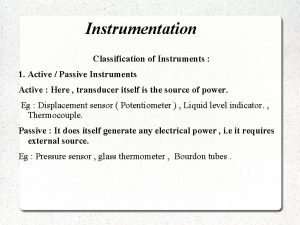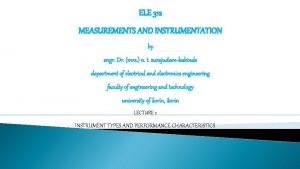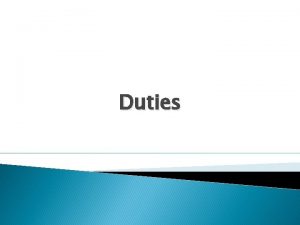Stamp duties Stamp duties are taxed on instruments




- Slides: 4

Stamp duties

Stamp duties are taxed on instruments and not on transactions or persons. For the purposes of stamp duty, an instrument is defined as any document chargeable with duty under the Revenue Code. The stamp duty rules are contained in Chapter VI of Title II of the Revenue Code. The instruments liable to stamp duty include, inter alia, transfers of land, a lease, stock transfers, debentures, mortgages, life assurance policies, power of attorney, promissory notes, letters of credit, travelers cheques.

Samples of stamp duty 1. Rental of land, building, other construction or floating house For every 1, 000 Baht or fraction thereof of the rent or key money or both for the entire lease period 1 THB 2. Transfer of share, debenture, bond and certificate of debt issued by any company, association, body of persons or organization. For every 1, 000 Baht or fraction thereof of the paid-up value of shares, or of the nominal value of the instrument, whichever is greater. 1 THB 3. Hire-purchase of property. For every 1, 000 baht or fraction thereof of the total value 1 THB 4. Loan of money or agreement for bank overdraft For every 2, 000 Baht or fraction thereof of the total amount of loan or the amount of bank overdraft agreed upon. 1 THB (1) Share or debenture certificate, or certificate of debt issued by any company, association, body of persons or organization 5 THB 1 THB (2) Bond of any government sold in Thailand For every 100 baht or fraction thereof.

Punishment (1) Whoever liable to duty or required to cancel stamps fails or refuses to pay the duty or to cancel the stamps shall be punished with a fine not exceeding 500 Baht. (2) Whoever, with a view to evading payment of duty, issued a receipt of less than 10 Baht for the value received of 10 Baht or over, or divides the value received, or, with a view to evading compliance with the legal provisions on the stamp duty, willfully falsifies any instrument, shall be guilty and punished with a fine not exceeding 200 Baht. (3) Whoever intentionally puts a false date of cancellation of a stamp shall be punished with a fine not exceeding 500 Baht or imprisonment not exceeding three months or both. (4) Whoever, with fraudulent intention, has in possession a stamp known to be forged or deals in stamps which have been used or declared out of use by Ministerial Regulations shall be guilty and punished with a fine not exceeding 5, 000 Baht or imprisonment not exceeding three years or both.







